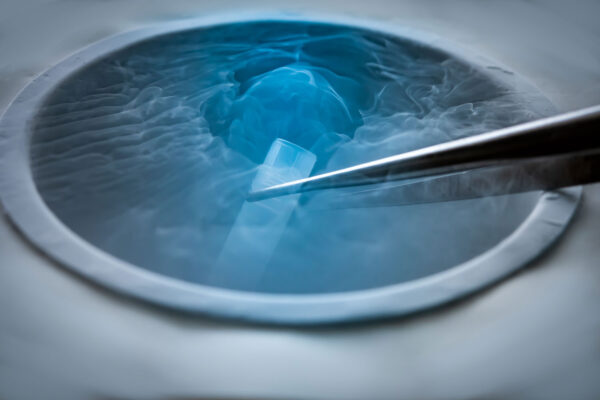
Adoptive cell therapies like those based on CAR-T cells have demonstrated remarkable success against several different cancer types, even in advanced cases. Targeted diagnoses include B-cell acute lymphoblastic leukemia (ALL), diffuse large B-cell lymphoma (DLBCL), and mantle cell lymphoma. CAR-modified cell therapies based on natural killer (NK) cells are also rapidly progressing toward the clinical stage. T cells and NK cells both play important roles in the body’s cancer surveillance mechanisms. While T cells target cancer cells presenting antigens on their MHC surface molecules, NK cells can attack those that might try to hide by reducing their MHC expression. One of the significant advantages of CAR-NK cells is a potentially lower risk of triggering graft-vs-host disease (GvHD), in which donor immune cells attack the recipient’s tissues, a known complication associated with allogeneic CAR-T cell therapies. As such, CAR-NK therapy products don’t need to be hastily manufactured from the cells of a gravely ill patient, but can instead be more easily manufactured in advance from a donor. The challenge then is cryopreserving them in such a way that they will retain their efficacy until they are administered to a patient.
Traditionally, cryopreservation protocols for mammalian cells have involved the utilization of dimethyl sulfoxide (Me2SO) at 10% concentrations, often combined with fetal bovine serum (FBS) or human serum albumin (HSA). However, apprehensions about Me2SO, including potential adverse reactions following infusion and limited cell-specific cytotoxic effects if misapplied, have prompted research efforts aimed at a Me2SO-free cryopreservation medium for CAR-NK cells.
Recently published work reports the formulation of an alternative cryopreservation medium using human serum albumin (HSA) and glycerol as base components1. Through meticulous screening of seven clinically-compatible solutions, four displaying cryoprotective properties were identified. These solutions were skillfully combined and optimized into a unified formulation named IF-M. This innovative Me2SO-free cryopreservation medium demonstrated remarkable effectiveness in preserving the viability, phenotype, and function of CAR-NK cells.
A thorough evaluation, comparing the Me2SO group with the IF-M group, unveiled significant advantages associated with IF-M. Results indicated that the viability and recovery of CAR-NK cells in the IF-M group were notably higher within the initial 90 days of cryopreservation. Crucially, after a year of cryopreservation, the cytotoxic capacity of CAR-NK cells preserved with IF-M was comparable to that of freshly prepared CAR-NK cells, surpassing those cryopreserved with Me2SO. The CD107a expression intensity of CAR-NK cells in the IF-M group also exhibited a substantial increase.
The application of IF-M as a Me2SO-free cryopreservation medium demonstrated robustness and suitability for long-term cryopreservation, addressing the limitations associated with Me2SO. The benefits include enhanced viability, recovery, and cytotoxic function of CAR-NK cells, paving the way for safer and more effective clinical applications. Additionally, IF-M provides a potential alternative for large-scale production of off-the-shelf CAR-NK cells.
Effective cryopreservation is a key determinant of how widely applicable CAR-NK cells may one day become. The development of the Me2SO-free cryopreservation medium, IF-M, showcases promising results in terms of viability, recovery, and cytotoxic capacity, even after prolonged storage. This research outcome not only addresses concerns associated with Me2SO but bodes well generally for the long-term clinical potential of CAR-NK cells in cancer immunotherapy, and possibly even for broader clinical applications.
References:
- Xu, R., Shi, X., Huang, H., Tan, W.-S., & Cai, H. (2024). Development of a Me2SO-free cryopreservation medium and its long-term cryoprotection on the CAR-NK cells. Cryobiology, 114, 104835. doi.org/10.1016/j.cryobiol.2023.104835
